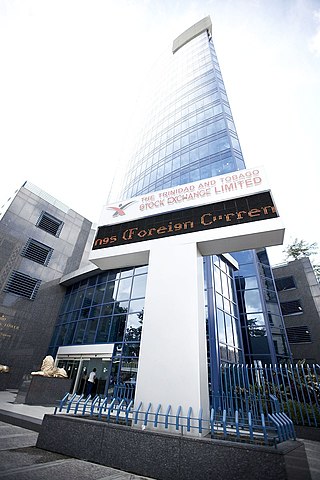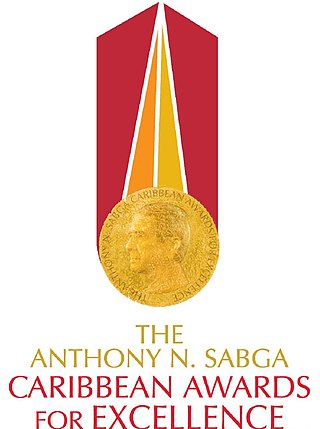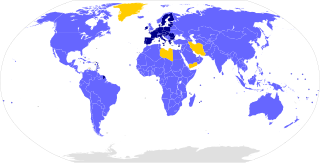Related Research Articles

The Kyoto Protocol (Japanese: 京都議定書, Hepburn: Kyōto Giteisho) was an international treaty which extended the 1992 United Nations Framework Convention on Climate Change (UNFCCC) that commits state parties to reduce greenhouse gas emissions, based on the scientific consensus that global warming is occurring and that human-made CO2 emissions are driving it. The Kyoto Protocol was adopted in Kyoto, Japan, on 11 December 1997 and entered into force on 16 February 2005. There were 192 parties (Canada withdrew from the protocol, effective December 2012) to the Protocol in 2020.

The United Nations Framework Convention on Climate Change (UNFCCC) is the UN process for negotiating an agreement to limit dangerous climate change. It is an international treaty among countries to combat "dangerous human interference with the climate system". The main way to do this is limiting the increase in greenhouse gases in the atmosphere. It was signed in 1992 by 154 states at the United Nations Conference on Environment and Development (UNCED), informally known as the Earth Summit, held in Rio de Janeiro. The treaty entered into force on 21 March 1994. "UNFCCC" is also the name of the Secretariat charged with supporting the operation of the convention, with offices on the UN Campus in Bonn, Germany.
Environmental finance is a field within finance that employs market-based environmental policy instruments to improve the ecological impact of investment strategies. The primary objective of environmental finance is to regress the negative impacts of climate change through pricing and trading schemes. The field of environmental finance was established in response to the poor management of economic crises by government bodies globally. Environmental finance aims to reallocate a businesses resources to improve the sustainability of investments whilst also retaining profit margins.

The Global Environment Facility (GEF) is a multilateral environmental fund that provides grants and blended finance for projects related to biodiversity, climate change, international waters, land degradation, persistent organic pollutants (POPs), mercury, sustainable forest management, food security, and sustainable cities in developing countries and countries with economies in transition. It is the largest source of multilateral funding for biodiversity globally and distributes more than $1 billion a year on average to address inter-related environmental challenges.
CL Financial was the largest privately held conglomerate in Trinidad and Tobago and one of the largest privately held corporations in the entire Caribbean, before the company encountered a major liquidity crisis and subsequent bailout in 2009.

Climate change mitigation (or decarbonisation) is action to limit the greenhouse gases in the atmosphere that cause climate change. Climate change mitigation actions include conserving energy and replacing fossil fuels with clean energy sources. Secondary mitigation strategies include changes to land use and removing carbon dioxide (CO2) from the atmosphere. Current climate change mitigation policies are insufficient as they would still result in global warming of about 2.7 °C by 2100, significantly above the 2015 Paris Agreement's goal of limiting global warming to below 2 °C.
The 'Economy of the Caribbean' is varied, but depends heavily on natural resources, agriculture and travel and tourism.

The Trinidad and Tobago Stock Exchange (TTSE) is the main stock exchange in the Republic of Trinidad and Tobago, and the largest stock exchange in the Caribbean region by market capitalization.
China plays an increasing important role of economic and developmental importance in the region and the relations with China have increased steadily over time. The Caribbean's relations with China, are largely defined as either: the People's Republic of China or the Republic of China. As of 2025, nine states in the Caribbean recognized the PRC and four recognized the ROC.
Angela Sarojanie Cropper was a Trinidad and Tobago economist who served as assistant secretary-general and deputy executive director of the United Nations Environment Programme (UNEP) and an independent senator. She founded the Cropper Foundation together with her husband John Cropper, and served as its president.

The Anthony N Sabga Caribbean Awards for Excellence were initiated by Anthony N. Sabga, one of the Caribbean's most celebrated entrepreneurs and founder and chairman emeritus of the ANSA McAL Group of Companies in the Republic of Trinidad and Tobago.

The Paris Agreement is an international treaty on climate change that was signed in 2016. The treaty covers climate change mitigation, adaptation, and finance. The Paris Agreement was negotiated by 196 parties at the 2015 United Nations Climate Change Conference near Paris, France. As of February 2023, 195 members of the United Nations Framework Convention on Climate Change (UNFCCC) are parties to the agreement. Of the three UNFCCC member states which have not ratified the agreement, the only major emitter is Iran. The United States withdrew from the agreement in 2020, but rejoined in 2021.
The nation of Trinidad and Tobago has been the leading supporter of the Caribbean Community (CARICOM). Trinidad and Tobago was one of the four members in 1973 which then along with Barbados, Guyana and Antigua and Barbuda moved to establish the organisation that today it known as the Caribbean Community and Common Market. The new organisation because a successor to the Caribbean Free Trade Association (CARIFTA) by the Treaty of Chaguaramas, of which Trinidad and Tobago was a leading member and also a founding member.

The Green Climate Fund (GCF) is a fund for climate finance that was established within the framework of the United Nations Framework Convention on Climate Change (UNFCCC). Considered the world's largest fund of its kind, GCF's objective is to assist developing countries with climate change adaptation and mitigation activities. The GCF is an operating entity of the financial mechanism of the UNFCCC. It is based in Songdo, Incheon, South Korea. It is governed by a Board of 24 members and supported by a Secretariat.

Climate finance is an umbrella term for financial resources such as loans, grants, or domestic budget allocations for climate change mitigation, adaptation or resiliency. Finance can come from private and public sources. It can be channeled by various intermediaries such as multilateral development banks or other development agencies. Those agencies are particularly important for the transfer of public resources from developed to developing countries in light of UN Climate Convention obligations that developed countries have.

Climate changein the Caribbean poses major risks to the islands in the Caribbean. The main environmental changes expected to affect the Caribbean are a rise in sea level, stronger hurricanes, longer dry seasons and shorter wet seasons. As a result, climate change is expected to lead to changes in the economy, environment and population of the Caribbean. Temperature rise of 2°C above preindustrial levels can increase the likelihood of extreme hurricane rainfall by four to five times in the Bahamas and three times in Cuba and the Dominican Republic. A rise in sea level could impact coastal communities of the Caribbean if they are less than 3 metres (10 ft) above the sea. In Latin America and the Caribbean, it is expected that 29–32 million people may be affected by the sea level rise because they live below this threshold. The Bahamas is expected to be the most affected because at least 80% of the total land is below 10 meters elevation.

India was ranked seventh among the list of countries most affected by climate change in 2019. India emits about 3 gigatonnes (Gt) CO2eq of greenhouse gases each year; about two and a half tons per person, which is less than the world average. The country emits 7% of global emissions, despite having 17% of the world population. The climate change performance index of India ranks eighth among 63 countries which account for 92% of all GHG emissions in the year 2021.

Sustainable Development Goal 13 is to limit and adapt to climate change. It is one of 17 Sustainable Development Goals established by the United Nations General Assembly in 2015. The official mission statement of this goal is to "Take urgent action to combat climate change and its impacts". SDG 13 and SDG 7 on clean energy are closely related and complementary.
Racquel Moses is a Global Ambassador for the United Nations Framework Convention on Climate Change (UNFCCC) and the Chief Executive Officer for the Caribbean Climate-Smart Accelerator (CCSA). Moses has represented the region at COP26-28, presenting a climate scorecard for rating the status and progress of countries at COP26 and a climate smart map for the Caribbean region at COP28.
Climate finance in Nigeria includes a mixture of domestic and internationally-sourced funding for climate change adaptation, mitigation and resilience.
References
- ↑ Government of the Republic of Trinidad and Tobago (2021-12-09). Trinidad and Tobago. National Communication (NC). NC 3.
- 1 2 3 4 Government of the Republic of Trinidad and Tobago (2021). First Biennial Update Report of the Republic of Trinidad and Tobago (PDF). Port of Spain: Ministry of Planning and Development. Retrieved 2024-06-05.
- ↑ Bachoo, Ryan (2024-05-31). "Civil society groups call for greater climate finance at SIDS4". Trinidad and Tobago Guardian .
- ↑ Today, Barbados (2022-07-13). "ANSA Merchant launches Caribbean Natural Capital Hub". Barbados Today. Retrieved 2024-07-11.
- ↑ "Launch of the Caribbean Natural Capital Hub". Issuu. Retrieved 2024-07-11.
- ↑ Christopher, Peter (2023-06-01). "SMEs to get grant funding". Trinidad and Tobago Guardian . Retrieved 2024-07-11.
- 1 2 Boodan, Shastri (2023-11-27). "Rambarran laments regional struggle for climate change financing". Trinidad and Tobago Guardian . Retrieved 2024-10-15.